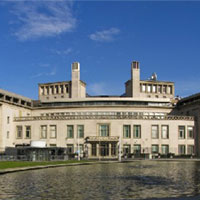Serbian authorities urged to abandon revision of history and denial of court-established facts
 The Chief Prosecutor of the International Criminal Tribunal for the former Yugoslavia (ICTY), Serge Brammertz, in his regular six-month address to the UN Security Council on 7 June 2017, presented a report in which he warned of a growing trend of denial and revisionism of court- established facts in Serbia and the entire region, as well as of the burning issue of the slowdown in the process of war crimes trials before Serbian courts, and the difficulties of regional cooperation between specialized prosecution offices. At the same session of the UN Security Council, the Serbian representative Čedomir Backović rejected any words of criticism and opposed Brammertz’s substantive objections by presenting the supposed statistical successes of the Serbian government that he represents. The signatories to this appeal demand that the Serbian authorities consider carefully the objections addressed to Serbia during the UN Security Council session, and deal with problems that have in recent years resulted in the growth of nationalism in society and a drastic deterioration in relations with the countries of the region.
The Chief Prosecutor of the International Criminal Tribunal for the former Yugoslavia (ICTY), Serge Brammertz, in his regular six-month address to the UN Security Council on 7 June 2017, presented a report in which he warned of a growing trend of denial and revisionism of court- established facts in Serbia and the entire region, as well as of the burning issue of the slowdown in the process of war crimes trials before Serbian courts, and the difficulties of regional cooperation between specialized prosecution offices. At the same session of the UN Security Council, the Serbian representative Čedomir Backović rejected any words of criticism and opposed Brammertz’s substantive objections by presenting the supposed statistical successes of the Serbian government that he represents. The signatories to this appeal demand that the Serbian authorities consider carefully the objections addressed to Serbia during the UN Security Council session, and deal with problems that have in recent years resulted in the growth of nationalism in society and a drastic deterioration in relations with the countries of the region.
In a sharply worded speech, Prosecutor Brammertz expressed alarm because of the continuation of the „ongoing and widespread denial“ of crimes and refusal to accept the facts established by the ICTY in Serbia and other countries of the former Yugoslavia: “The message of denial and revisionism is loud and clear. We recognize our victims but not yours. Your war criminals are our heroes.“ He also pointed to the fact that local officials today, like their predecessors who led the countries of the former Yugoslavia into the wars of 20 years ago, are using „divisions, discrimination and hate to secure power“.
The Prosecutor’s report states with regret that Serbia „has returned to the practice of non-cooperation with the Tribunal“, and that for almost two and a half years has been refusing to surrender three persons accused of contempt of court – Petar Jojić, Vjerica Radeta and Jovo Ostojić. Serbia was criticized by the President of the ICTY, Carmel Agius, because of the same issue, and President Agius also recalled that this issue has been raised several times before the UN Security Council, but without success.
The report stresses that Serbia’s progress in the prosecution of war crimes is generally „negative“, that the positive indicators of investigations and prosecutions are „very limited“, and that there is no significant change in the bad trends established in recent years. Prosecutor Brammertz pointed out that regional judicial cooperation in war crimes justice „is heading in the wrong direction“, and invited Serbian and other national authorities to resolve this problem.
Instead of acknowledging the objections raised and showing willingness to overcome the accumulating problems in the fields of prosecuting war crimes and of relationship towards court-established facts, the Serbian representative, Čedomir Backović, rejected the statements made by the Chief Prosecutor and President of the ICTY, and responded to the criticism with criticism. He expressed resentment at the ICTY representatives for allegedly going beyond their determined competencies and mandates, in their statements dealing with education, history and other non-judicial topics. Instead of reflecting on the content of the criticism addressed to Serbia and responding to the justifiable claims of a new and increased trend of revision of facts from the past, Backović chose to attack the representatives of the ICTY and dismiss any criticism. In response to the claims about the limited results of the trials for war crimes before the domestic courts and the problems in regional cooperation, he gave a list of statistical data that have already been misused previously, and pointed to the bureaucratic „success“ of the adoption of the National Strategy for war crimes prosecution and Action Plan for Chapter 23, which, according to estimates by the civil society, are barely being applied in practice (see the report of the HLC on war crimes trials in Serbia, pages 19-22). Instead of responding to criticism about the lack of cooperation of Serbia with the ICTY, he hid behind the legal framework that allegedly does not allow for the surrender of the accused for contempt of court, although such surredners occurred in the past under the same law.
Serbia’s defensive attitude is even more worrisome if we take into account that this is not the first time that the ICTY has criticized Serbia about the same issues, and that representatives of civil society have been pointing to the problems of the revision of the past and the slowdown of the process of war crimes trials for years. The ceremonial state welcome for war criminals and their return to public life, the glorification of the wartime leadership of Serbia, the refusal to accept the court-established facts regarding the Srebrenica genocide and other crimes committed by perpetrators from Serbia, the complete absence of indictments against high-ranking perpetrators, the obstruction of war crimes trials that have resulted in endlessly long trials, the year and a half wait for the election of the War Crimes Prosecutor, the slowdown of cooperation between the Serbian prosecutor’s office with regional prosecutors’ offices because of political pressures, the opposition to the findings of judgments for war crimes by the regional courts, and the other problems that Prosecutor Brammertz addressed in the report before the UN Security Council, have already been pointed out on many occasions in the reactions of civil society representatives in Serbia. The representatives of the state, however, have responded to those reactions in the same way as to the Prosecutor Brammertz’s speech – arrogantly and defensively, sometimes even aggressively.
The signatories of this statement appeal to the state authorities of Serbia to once again study the reports and consider with the greatest possible attention the criticism of the Chief Prosecutor and other representatives of the ICTY and the International Residual Mechanism, as well as the remarks by the Humanitarian Law Center and other civil society organizations, about the work of war crimes justice and the attitude of the state towards its wartime past. We call on the representatives of the state to immediately stop creating an atmosphere in which war crimes trials, especially of high-ranking officials, are almost impossible, the glorification of criminals and disparagement of victims are habitual, and conflicts with neighbouring countries on the subject of war history and lack of cooperation with the Hague Tribunal are permanent marks of state policy. The first significant step in that regard would be the consistent implementation of the National Strategy and Action Plan for the prosecution of war crimes, respect for the rights of victims, and distancing of state bodies and political parties, especially those in power, from convicted or suspected war criminals.
Astra
Belgrade Centre for Human Rights
Center for Euro-Atlantic Studies CEAS
Civic Action Pancevo
Civil Rights Defenders
Helsinki Committee for Human Rights in Serbia
Humanitarian Law Center
Independent Journalists’ Association of Vojvodina
Network of the Committees for Human Rights in Serbia CHRIS
Praxis
Sandžak Committee for the Protection of Human Rights and Freedoms
The Lawyers’ Committee for Human Rights YUCOM
Women in Black
Youth Initiative for Human Rights







